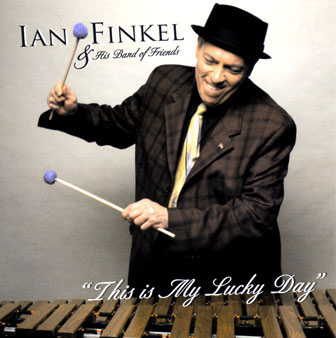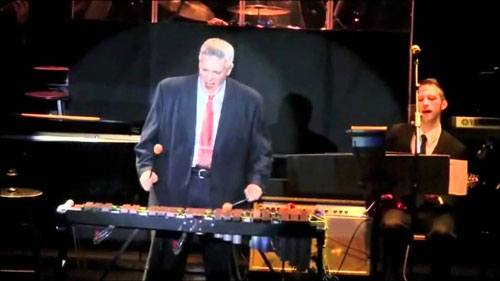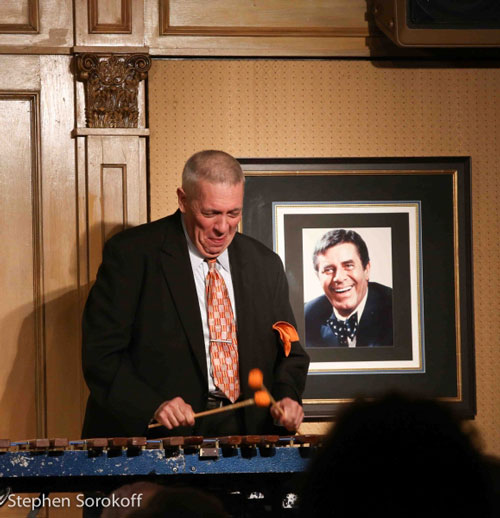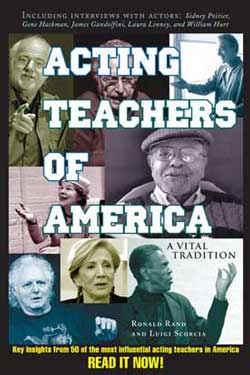Ian Finkel
 Is regarded as the world's greatest xylophone virtuoso. He has appeared with and written for Michael Feinstein, Sid Caesar, Ginger Rogers, Tito Puente, Larry Gatlin, Martin Mull, and Madeline Kahn. Mr. Finkel has appeared on all major television stations, recorded for most record labels and has had successful concert tours in Japan, Korea, Canada, Mexico, England as well as America. Mr. Finkel has collaborated with Philip Glass and has heard his works performed by numerous orchestras including the American Symphony Orchestra and the Little Orchestra Society. Mr. Finkel has appeared been on many television shows, films and live performances including “Love Laffs,” “Jerry Lewis Telethon,” Woody Allen’s film, “Radio Days,” with Michael Feinstein on Broadway, “Second Avenue to Broadway,” with Fyvush Finkel, “Read-a-thon with Sesame Street Players,” and at hundreds of colleges across America, and as a headliner on all cruise ship lines. As a writer, Mr. Finkel has penned many film and stage productions including “Rainbow Wars” (nominated for Academy Award). “It’s Up to All of Us,” “Second Avenue to Broadway,” “Michael Feinstein in Concert,” “Sophie Tucker in Person,” “Music of Vic Mizzy,” as well as three novels and several books of short stories.
Is regarded as the world's greatest xylophone virtuoso. He has appeared with and written for Michael Feinstein, Sid Caesar, Ginger Rogers, Tito Puente, Larry Gatlin, Martin Mull, and Madeline Kahn. Mr. Finkel has appeared on all major television stations, recorded for most record labels and has had successful concert tours in Japan, Korea, Canada, Mexico, England as well as America. Mr. Finkel has collaborated with Philip Glass and has heard his works performed by numerous orchestras including the American Symphony Orchestra and the Little Orchestra Society. Mr. Finkel has appeared been on many television shows, films and live performances including “Love Laffs,” “Jerry Lewis Telethon,” Woody Allen’s film, “Radio Days,” with Michael Feinstein on Broadway, “Second Avenue to Broadway,” with Fyvush Finkel, “Read-a-thon with Sesame Street Players,” and at hundreds of colleges across America, and as a headliner on all cruise ship lines. As a writer, Mr. Finkel has penned many film and stage productions including “Rainbow Wars” (nominated for Academy Award). “It’s Up to All of Us,” “Second Avenue to Broadway,” “Michael Feinstein in Concert,” “Sophie Tucker in Person,” “Music of Vic Mizzy,” as well as three novels and several books of short stories.
Was it an exciting experience growing up?
Yes and no. Once I decided to become a musician, some things began to perk up. I didn’t play an instrument until I was thirteen or fourteen. I didn’t become an entertainer until I was in my thirties. I didn’t start my instrument until I was nineteen, then I become interested in becoming the world greatest xylophone player. I think I played a million shows. It wasn’t my wish to become an entertainer, but I learned a lot from others at an early age. I’m a late starter, it happens.

What brought you to the xylophone and how did you develop your skills with Walter Rosenberger, the xylophonist of the New York Philharmonic?
Basically what happened was I started out when I was around fourteen years old on the drums and I was god-awful horrific. I switched to trumpet; I was worse. My music teacher was Norman Grossman, an old-time teacher. He was the real thing, and he got me a job cleaning at the Astor Hotel. So he shows me all the instruments. My brother was accomplished pianist and I was too late to play that, and he shows me the violin – too late, then he shows me a xylophone. I thought playing it would get me girls, but it didn’t. It’s not like the guitar which I think does that.
So in I go into the xylophone a little before I’m nineteen. I cranked it out eight hours a day until I was about twenty-six, and then I went for courses at the Manus School of Music. Walter Rosenberger was in the New York Philharmonic and I take lessons with him.
I was mostly self-taught like I said until I was twenty-six, from then on out, I’m averaging practicing four to five hours a day no matter what. If you wanted to be the best, you have to practice. You have to work like a dog.
What is it about the xylophone that touches audiences so much?
I’m not sure. There are certain instruments that can have the same kind of effect. The banjo – a lot of people make fun of it, but it makes you automatically happy. An accordion can make people happy and it can also make people angry at the same time, if you have to go to your own bar mitzvah, like it did for me in 1948.
With the xylophone, I play concertos and a lot of violin music; I’ve raised it to an art. I think my playing the xylophone They respect my virtuoso playing. If I wasn’t a virtuoso and a good entertainer, I’d be an old joke in Las Vegas. I win my audiences over by playing it seriously. I may make jokes in between numbers and hopefully charm the audience, and then play the instrument like it’s a concert grand piano with forty-four keys. The xylophone starts at the midpoint of a piano which is eighty-eight.

How do you prepare for a performance and how have you learned to maintain your energy?
Several ways. I don’t have as good as memory as I used to and it’s not as good as my brother or my Dad; they learn scripts. I am a great sight-reader but if I have to memorize a piece then I have to sit down and prepare. I memorize what the music is and I have to get it down. I have to figure out where it goes in my act. If it’s a concerto with a symphony and I have to play a really hard piece, I have to be charming and at the same time, create a thread which goes through my entire act.
I try to give every second my fullest attention. The audience deserves it. I’m the world’s greatest and I hope they like me and I give it everything I got. I don’t make self-depreciating gags, and I never say anything about politics. My Dad and his contemporaries, his cronies, they were good at that. If you say anything that your mother couldn’t be in the audience for, then it shouldn’t be in your show.
What gives you the greatest joy and satisfaction performing for an audience?
I want people to leave with the feeling that they heard good music. Good music is a funny thing – it’s really what you like. I want them to leave having heard someone with expertise. In order to do that, there are certain elements that have to exist. Obviously the band has to be great. Mine in New York is the highest. I try to have the same on the road. Also the lighting has to be wonderful, and the sound.
It’s not about me. I want everything to be good. If I’m opening for someone, I want it to be great so when they walk out and say hello, everything has to be so good leading up that moment. The main thing in any show is the writing and the acting. It’s everything, so it has to be good especially for what they’re charging these days. I’ve done a lot of ship appearances with symphonies from Norway to Puerto Rico.
You also wrote “Rainbow Wars” and several other shows, plus three novels. How did you discover your ability to write and then cultivate your writing skills?
I began writing around the time when Kennedy was president. There are two sides to writing music. Of course, one is becoming a musician and working to make money. I wrote arrangements when I started in the early 1970’s. I did some quite nice work. I stated writing music. I could write in any style in music later on.
When I became an entertainer, I became a talker. I hadn’t spoken as much up until then in my act. Now I write a lot. It’s a tricky thing writing for other folks. Writing a novel is a hard thing. You have to work to make it a good piece of writing; its almost like writing a symphony. I really enjoy writing, and I'm practicing five hours a day. So the other hours I use for writing. I’ve written bout five or six novels. I've also directed shows, including one called “Addicted to Show Business” starring a wonderful Dave Konig at St. Luke’s Theatre.
What give you your greatest source of strength?
Probably "high rent." Actually, it's because I don’t want anyone to be better on the xylophone. I love doing what I do. I want people to enjoy it. I try in everything I do to give 100%. I do love doing what I do what I do. I love the music, the theater and I want to give people something they'll love.
























